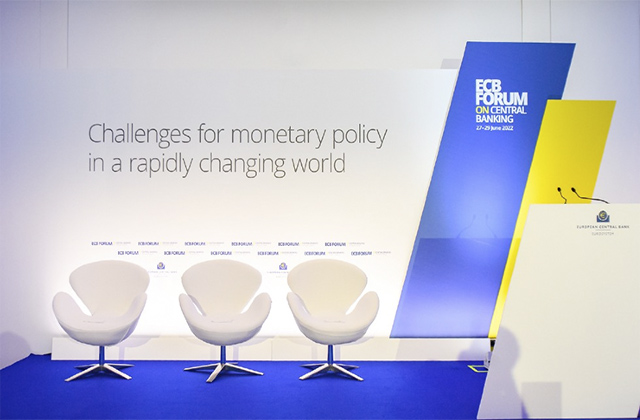Bankinter | After the monetary policy panel with Lagarde (ECB), Powell (Fed), Bailey (BoE) and Ueda (BoJ), the messages of the last meetings were maintained, as expected. Lagarde, Powell and Bailey recalled that central banks are data dependent, that they take decisions “meeting by meeting” and that their work is not yet finished. Lagarde referred to a hike in July as quite likely, but did not give any guidelines for the September meeting. Powell recalled that, despite the pause at the last meeting, the Fed’s dot plot shows additional +50bp rate hikes.
And Bailey pointed out that, as the market expects, there are still BoE rate hikes to come until the end of the cycle. All three central bankers have shown their concern with inflation remaining high and sticky. For the ECB to consider pausing, Lagarde needs to see the underlying rate clearly slowing. Powell divides the inflation problem into 3: (1) Goods inflation; (2) Housing Services inflation; and (3) Ex-Housing Services inflation. His concern is with the third part, where employment plays an important role. For the Fed, controlling inflation means bringing the labour market towards equilibrium. Even if this does not mean a pick-up in unemployment due to the high ratio of job vacancies to unemployed. For his part, Bailey has acknowledged that he also has to live with a tight labour market. However, he does not attribute this to Brexit, but to the fall in the labour force during the pandemic, which has not recovered as quickly as in other geographies. Ueda was an exception among the four and has defended the BoJ’s ultra-loose monetary policy with core inflation still below the 2% target. The central banker expects inflation at around +1.8% in 2023 and +2.0% in 2024. Thus, Ueda has admitted that Japan’s monetary policy could change in the coming year, if his projections are confirmed. All in all, it has been an event without surprises, in which central bankers have maintained the tone of the message of recent meetings.





